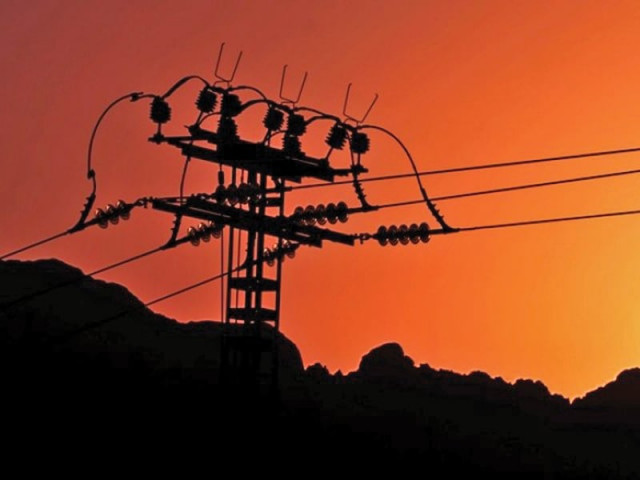Ramazan relief: Despite promise, outages could not be controlled
Minister says poor power transmission system fails to cope with pressure.

Ramazan relief: Despite promise, outages could not be controlled
The government has acknowledged its failure to end electricity outages during Sehr and Iftar, saying 20% to 30% areas are still facing power cuts because of a poor and defective transmission system.
“Pakistan has an old transmission system which was unable to deliver required electricity,” Abid Sher Ali, State Minister of Water and Power, told the National Assembly Standing Committee on Water and Power in a meeting chaired by Mohammad Arshad Khan Leghari.
“Sometimes our demand exceeds 15,000 megawatts, but the transmission infrastructure is unable to cope with this pressure, leading to breakdown of feeders.”

The Asian Development Bank (ADB) and Japan International Cooperation Agency (Jica) had also withdrawn funds approved for upgrading the power transmission system following failure of the National Transmission and Dispatch Company (NTDC) to utilise the money, he said.
Ali expressed fear that the entire transmission system would collapse if the government tried to avoid power cuts and ensure uninterrupted supply. However, he stressed that different initiatives were being undertaken to improve the transmission and distribution system.
Commenting on foreign financing, Ali said installation of transformers was delayed unnecessarily and even funds, which were approved by the ADB and Jica, were not utilised.
The prime minister has constituted a committee to probe why funds were not spent on upgrading the transmission system and the money went back to the ADB and Jica. It will also submit its report to the parliamentary committee on water and power.
At the beginning of Ramazan, the government pledged that it would not resort to power outages during Sehr, Iftar and Taraveeh timings to facilitate the consumers.
To implement the plan, it asked Pakistan State Oil (PSO) to supply 22,000 tons of furnace oil to power plants every day in a bid to enhance generation. Earlier, PSO was providing 18,000 to 20,000 tons per day.
The government also released Rs40 billion to the power producers and PSO – a major importer of oil – to ease the strain on their finances.
Just before the start of Ramazan, PSO defaulted on payments to international fuel suppliers as it could not retire five letters of credit by the deadline. This pushed up oil premiums, making the suppliers reluctant to provide oil without advance payments.
Subsidised power
Ali alleged that the subsidised electricity being provided to agriculture tube wells in Balochistan was being illegally used in hotels, though farmers were paying the bills. “We have found several cases where subsidised electricity for tube wells was used for commercial purposes.”
He ruled out any further reduction in power tariff for agriculture tube wells, saying instead that they were considering proposals to increase the tariff.
As the government was suffering a loss in electricity production, he said, the privatisation of plants would start from April next year.
Published in The Express Tribune, July 4th, 2014.
Like Business on Facebook, follow @TribuneBiz on Twitter to stay informed and join in the conversation.





1733130350-0/Untitled-design-(76)1733130350-0-208x130.webp)











COMMENTS
Comments are moderated and generally will be posted if they are on-topic and not abusive.
For more information, please see our Comments FAQ